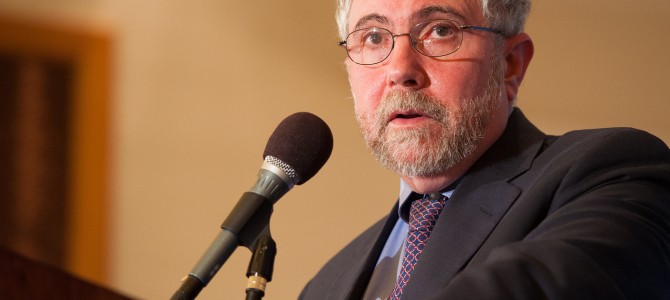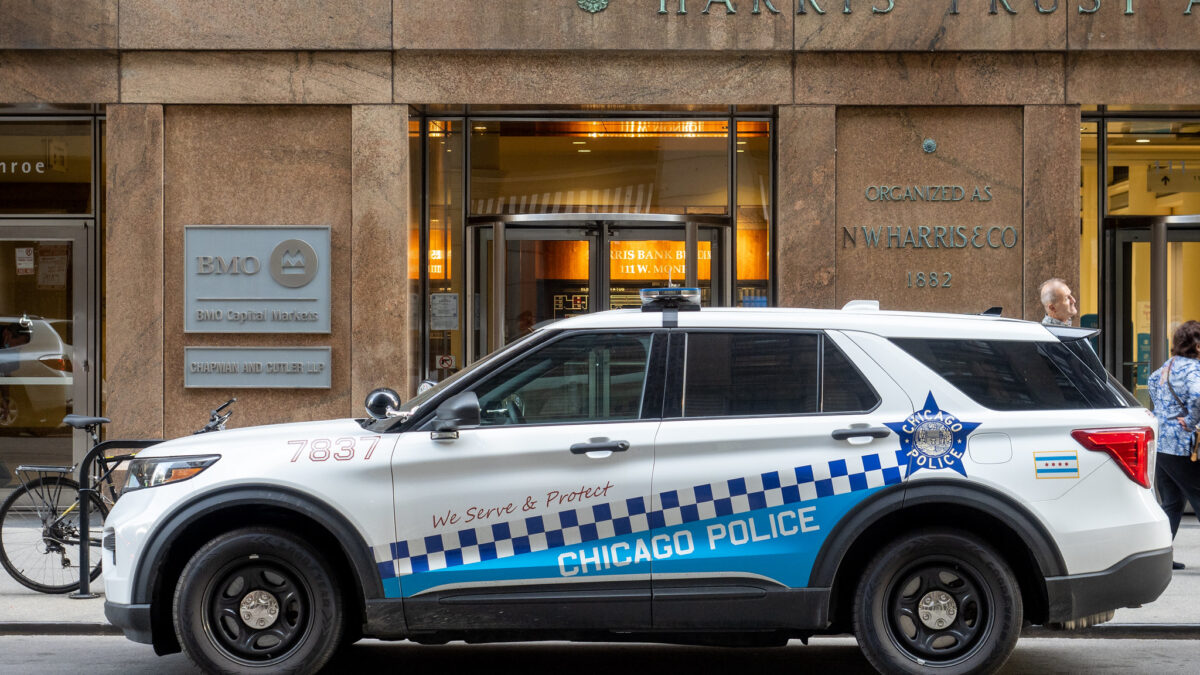
The liberal reaction to Donald Trump’s election has been nothing short of a train wreck. Not an exciting fictional train wreck like in “The Fugitive,” but a real train wreck—loud, destructive, frightening, and pointless. Few people have embodied this pointless intellectual mayhem better than liberal pundit Paul Krugman.
A few weeks after the election, Krugman was calling for an “independent investigation” into allegations that some voting machines may have been “hacked.” He quickly backed off this wild conspiracy theory when it became clear that there was not a shred of proof to support it (although he also tacitly defended himself for believing it in the first place).
Let the Wild Conspiracy Theories Begin
Has the passage of a few more weeks allowed Krugman to calm down? Not hardly: in The New York Times last week, he wrote what may be the most quietly unhinged column of the entire election, no mean feat. In it, he accuses the Federal Bureau of Investigation of being “a highly partisan institution,” one with “distinct alt-right sympathies.” He also accuses the Federal Bureau of Investigation of being a “rogue domestic law enforcement agency.”
Abandoning any pretense, Krugman now fully believes that, in his own words, “the election was hacked,” due to the nefarious “last-minute intervention” by the FBI, along with the “steady drumbeat of Russia-contrived leaks about Democrats.” The media itself was culpable: according to Krugman, “news organizations” had to have known that, via their coverage of the FBI’s investigations, they “were being used as political weapons.” According to Krugman, these agencies, industries, and individuals all functioned as “useful idiots” who “made the election hack a success.”
Not to be outdone by himself, Krugman later took to Twitter to strongly imply that Trump might manufacture a terrorist massacre of American citizens to deflect suspicion away from himself.
Paul Krugman’s Not Alone, Either
It might be tempting to write this off as a lone crank babbling into the depths of the Internet, hoping someone takes him seriously. But Krugman is not an irrelevant yahoo working out of some basement somewhere. He’s a respected Nobel laureate, a New York Times columnist, and a professor at a highly respected American university. He’s not part of a fringe; he’s firmly mainstream, and has been for a long time.
It is thus useful to understand Krugman as a kind of prominent bellwether of the current state of American liberalism, like Kansas before him, Krugman is a useful illustration of a larger political phenomenon: the Left is not handling this election well.
Just the other day, for example, Slate’s Jamelle Bouie tried to draw a direct line between Trump and psychopathic mass murderer Dylan Roof, urging us to “see both Donald Trump and Dylann Roof as heralds of the darkest forces in American life.” Pundit Keith Olbermann, meanwhile, called Trump a “Treacherous Russian whore” and vowed to Trump: “We will get you.” And The New York Times accused nominated Environmental Protection Agency head Scott Pruitt of being a “climate denialist” because he once (correctly) pointed out that many scientists disagree about “the degree and extent of global warming and its connection to the actions of mankind.”
These are the contortions of a political movement that is struggling to deal with basic reality. As someone who was firmly in the #NeverTrump camp, I was not happy with Trump’s election, and I remain nervous and suspicious of his presidency, particularly regarding free speech, health care, and economic policy. At the same time, I am not making a fool out of myself, howling in anguish every time Trump selects a cabinet member or broadcasting feverish conspiracy theories about election “hacking.”
Yes, Trump was a bad candidate and may indeed turn out to be a very bad president. But the liberal meltdown goes above and beyond a reasonable response. The Left honestly needs to relax.
To be fair, part of this may be less about this particular election and more about the foundational political impulses of American liberalism itself. As we saw in 2000 and 2004, and now in 2016, American liberals do not handle losing elections very well. After suffering a loss, they invariably claim elections were “stolen,” chant that the winner is “not my president,” and insist that the election results were caused by sinister espionage or political sabotage. The liberal order does not seem to possess a healthy way of dealing with losing.
In the end, however, they’ll just have to deal with it like the rest of us already have. It is time for liberals to grow up and just accept what is. They can always refuse, of course, and remain in a perpetual state of political immaturity. That may not help them win any elections in the future, but it’s apparently enough to land one an op-ed column in The New York Times.









